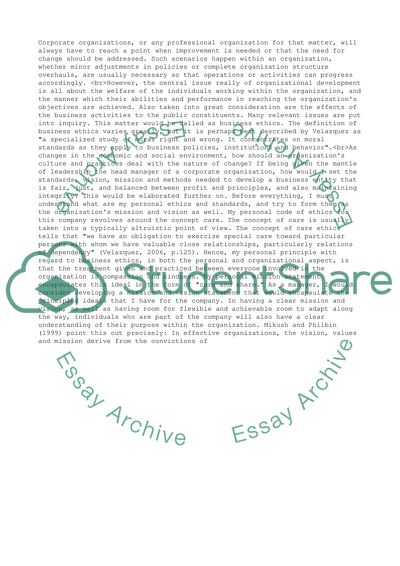Cite this document
(“A Reflection and Evaluation to Personal and Organizational Business Research Paper”, n.d.)
Retrieved de https://studentshare.org/business/1390925-a-reflection-and-evaluation-to-personal-and-organizational-business-ethics
Retrieved de https://studentshare.org/business/1390925-a-reflection-and-evaluation-to-personal-and-organizational-business-ethics
(A Reflection and Evaluation to Personal and Organizational Business Research Paper)
https://studentshare.org/business/1390925-a-reflection-and-evaluation-to-personal-and-organizational-business-ethics.
https://studentshare.org/business/1390925-a-reflection-and-evaluation-to-personal-and-organizational-business-ethics.
“A Reflection and Evaluation to Personal and Organizational Business Research Paper”, n.d. https://studentshare.org/business/1390925-a-reflection-and-evaluation-to-personal-and-organizational-business-ethics.


